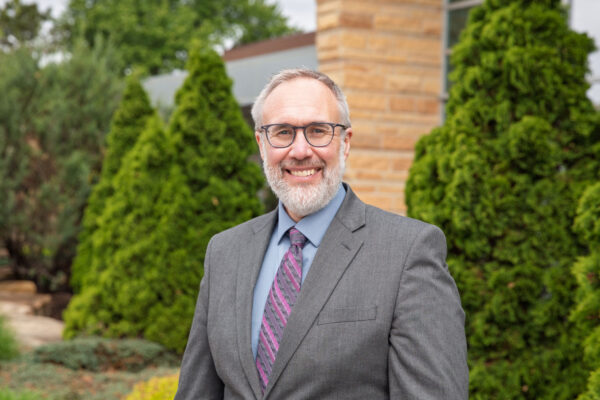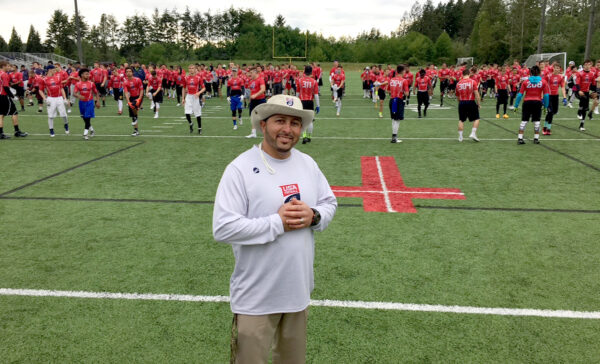By Miguel Macias-Armenta
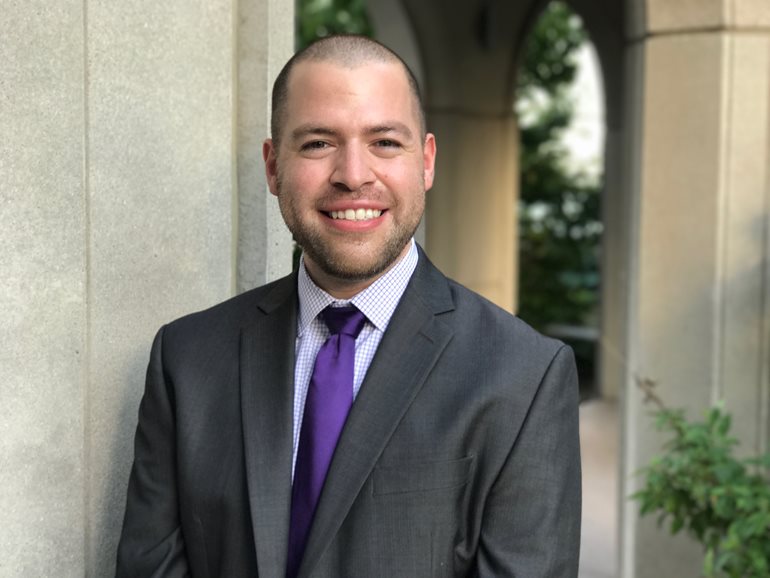
My family’s journey to the United States from Mexico 37 years ago is central to my lived reality as a U.S.-born Mexican American in this country. In 1984, my parents left their home in Michoacán, Mexico, their families’ ancestral land. They traversed the U.S.-Mexican border to search for opportunity and relief from a dire economic environment that denied them the ability to access pathways to living a healthy and secure future. Leaving Mexico was a difficult decision for my family for many reasons. Both of my parents moved with tremendous courage as they set off on their journey to the Pacific Northwest, leaving behind what they had known their entire lives. They had aspirations to build their lives in a place where they could raise a family and provide their children the opportunity to grow and thrive.
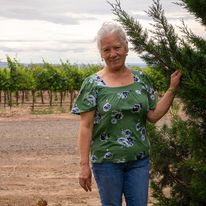
Their journey to the Pacific Northwest was arduous; only my parents can fully describe that crossing. I will instead quote Gloria E. Anzaldua, Chicana cultural scholar: “The U.S.-Mexican border es una herida abierta(is an open wound) where the Third World grates against the First and bleeds. And before a scab forms it hemorrhages again, the lifeblood of two worlds merging to form a third country — a border culture. Borders are set up to define the places that are safe and unsafe, to distinguish us from them.” Crossing the border for my parents still carries many traumas, which have now become stories they share to demonstrate courage and resilience in the face of challenging circumstances.
I grew up in Eastern Washington — the Yakima Valley — listening to banda and mariachi music, watching novellas on Univision, conversing in Spanish and English with family and friends, and eating the best home-cooked Mexican food. I was surrounded by a thriving Mexican community, many of whom were farmworkers. I grew up next to the apple and cherry orchards where my parents often took me to work while I was still a baby. One of my earliest pictures of myself is sitting in a stroller next to an apple bin. I had the biggest smile on my face in that picture, and I am sure that I felt the love and care from my entire community that morning. For that reason, I exude pride in my parents’ work, and I honor all the farmworkers who provide us food to keep us fed and healthy.
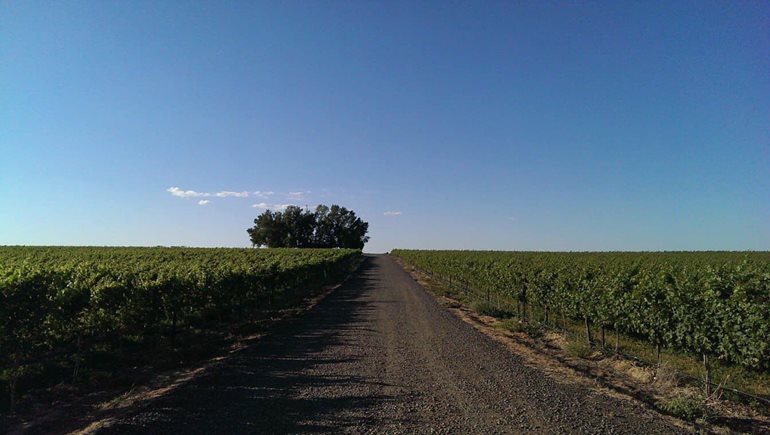
Growing up in Eastern Washington, I don’t think I, nor my younger brothers and sisters, quite understood the dynamic of what it meant to be both bilingual and bi-cultural. It was natural for us to speak Spanish at home and English at school and in other places. Between my siblings, we would use Spanglish as the primary form of communication amongst ourselves. My siblings and I got good at navigating many different worlds, a skill that I still use today. We were enriched with the opportunity to learn about our culture at home from our parents and to learn and experience our people’s rich traditions. I felt that keeping cultural traditions was important to my parents to feel closer to home, a place they talked about every day.
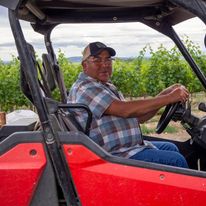
I did, however, understand that there was a difference between my family and those in our community without ties to Mexico. We experienced multiple forms of racism for not being part of the majority culture, from hearing disparaging remarks aimed toward my family in public to witnessing the structural racism play out in the workplaces of both of my parents regarding labor issues. The subtle and the more overt racism profoundly impacted the way I experienced my Mexican identity.
I began to resent being Mexican; it felt othering in a way that created internal divisions within me. I felt confused and unsure of who I was. Yet, at the same time, my parents continued to inspire cultural pride in me, a pride that endured even in the most challenging environments of harassment and discrimination. They knew it was one way to break down the border between us and them and for their children to have a life better than their own. They modeled many traits I wanted to emulate, particularly the courage and audacity to move in both worlds with joy and fortitude.
Their courage and boldness as farmworkers paved the way for me to attend and graduate from Washington State University. WSU was transformational to my identity development. For the first time in my life, I had the opportunity to connect with faculty and other students to learn more about the history of Latinx people in this country and what it meant to be Mexican. There were student groups centered on Latinx identities, and the curriculum focused on my people. Both redefined and imagined a new way to express and live in my Mexican Identity. At WSU, I helped organize a conference that brought high school students to the university from all around the state who identified as Chicanx/Latinx to learn about higher education and the cultural legacies of Latinx folks in this country. This conference was a moment of pride for me, a moment where I felt deeply connected to my passion and identity.
As the first-ever director of the Student Diversity Center at UW Bothell, I am well aware of how my journey and that of my family’s impact how I show up for my community and our students. I carry with me my family’s legacy of breaking barriers and living life courageously. I often see my own lived realities within my students; I do what I can to provide a space of reflection and learning for them, just as folks did with me in my own college experience. I hope that our UW Bothell community will create spaces for counter-narratives for our students, an environment where students can bring all of their cultural wealth into our University and start to make meaning of their past, present and future. Each day, I am inspired by the stories I hear from them, each student their own world of experiences and aspirations.
This Hispanic Heritage Month, I hope we all better understand what moves us, inspires us and keeps us moving through the most difficult of situations.
According to the Pew Hispanic Research Center, the U.S. reached 60.6 million people identifying as Hispanic in 2019, up from 50.7 million in 2010. These figures signify the Latinx community’s growing presence and influence, yet they don’t equate to similar growth in our universities, government and media. I’m proud to work at UW Bothell, where I can affect greater representation in these segments of society.
As we celebrate National Hispanic American Heritage Month Sept. 15 to Oct. 15, I honor my parents for their sacrifices that led me here. I am because they were.
Miguel Macias-Armenta is the inaugural director of the Student Diversity Center at the University of Washington Bothell. Miguel has worked in higher education for more than 10 years and is passionate about creating transformative change in the lives of students and their communities.
